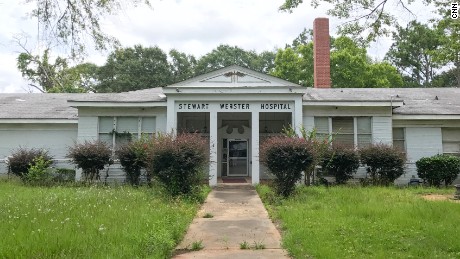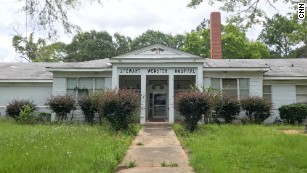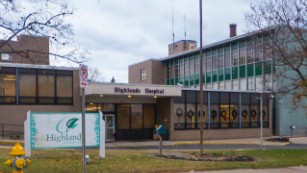Results 1 to 6 of 6
Thread Information
Users Browsing this Thread
There are currently 1 users browsing this thread. (0 members and 1 guests)
-
07-01-2017, 07:45 PM #1
600+ rural hospitals in danger of shutting doors, by cuts to Medicaid
600+ rural hospitals in danger of shutting doors

Many providers worry proposed health care legislation & cuts to Medicaid could push hospitals over the edge
Cuts threaten rural hospitals 'hanging on by their fingernails'
Story by Michael Nedelman, CNN
Video by Nick Valencia and Meridith Edwards, CNN
Updated 6:18 PM ET, Sat July 1, 2017
(CNN)One Monday in 2013, Dr. Alluri Raju learned that the only hospital in rural Richland, Georgia, would close on Wednesday. But there were still patients in hospital beds and surgeries scheduled for Wednesday.
Raju pleaded with the hospital's owner to keep it open a few more days.
Ultimately, the hospital closed that Friday, leaving the rural town without a hospital for miles. Raju, who had been the hospital's chief of staff, is now the only doctor left in the town a two-hour drive south of Atlanta.

The Stewart-Webster Hospital closed in 2013, leaving residents in rural Richland, Georgia, without another hospital for miles.
"I was very devastated when the hospital was closed," Raju said. "I was so attached to it. I practiced there for 33 years."
Nationwide, about 80 rural hospitals have closed since 2010, according to the Chartis Center for Rural Health. Another 673 rural hospitals are in danger of shutting their doors. Many providers worry that the newly proposed health care legislation -- and in particular its proposed cuts to Medicaid -- could push a number of hospitals over the edge.
"These hospitals are hanging on by their fingernails," said Maggie Elehwany, vice president of government affairs for the National Rural Health Association, a nonprofit health research and advocacy group. "If you leave this legislation as is, it's a death sentence for individuals in rural America."
Nearly two-thirds of the lowest performing hospitals are in states that didn't expand Medicaid, according to a previous Chartis report. One case-in-point: the state of Georgia, which did not expand Medicaid and where over half of the state's 73 rural hospitals are in danger of closing. Six have closed since 2010.
Raju knew that Richland's Stewart-Webster Hospital was "financially strained." Even for those patients covered by Medicaid, low reimbursement rates did not make a big enough dent. But Raju did not turn away any patients, even if they couldn't pay, he said.

Already troubled, rural hospitals brace for effects of Obamacare repeal
Rural hospitals take a financial hit when they provide care to uninsured patients who can't afford it, said Elehwany. By insuring poorer patients, the Affordable Care Act hoped to remedy that. Despite its positive impacts, she said, it wasn't the magic bullet rural communities had hoped for.
"We strongly support the goals of the ACA," Elehwany said. "Everybody admits there's a few problems with the ACA, and unfortunately ... they seem to be magnified in rural America."
Some of these problems, she said, stem from high-deductible plans with rising premiums, as well as few choices on the private exchanges. This may make insurance out of reach for an aging rural population, who are poorer and sicker on average than their urban counterparts, and who bear the brunt of the opioid epidemic, according to experts.
Sen. Shelley Moore Capito, a Republican from West Virginia, came out against the Senate health care bill this week for these reasons.
"As drafted, this bill will not ensure access to affordable health care in West Virginia, does not do enough to combat the opioid epidemic that is devastating my state, cuts traditional Medicaid too deeply, and harms rural health care providers," Capito said in a statement.

What exactly does Trump want from this health care bill?
Other Republican senators have argued that the health care bill could strengthen Medicaid, with Sen. Richard Burr, a Republican from North Carolina, saying in a statement last week that the bill provides additional funding to community health centers "to ensure they can continue to provide access to care in rural and hard to reach places."
The Senate bill could cut revenues to rural providers by $1.3 billion each year, according to the Chartis Center and its partner iVantage Health Analytics. Roughly 34,000 jobs are also at risk, according to the analysis.
Raju, who sees 20 to 25 patients a day in his office, is not optimistic that hospital doors will reopen in Richland.
"I'm very doubtful it's going to happen, but we're not going to give up. We'll keep trying," he said.
That leaves his patients in what is known as a "medical desert." A long drive to the nearest hospital -- 45 minutes or more -- could be the difference between life and death, he said.
"Time is essential," he said. "We're going to lose some patients on the way because they cannot get the care in a reasonable amount of time."
But that doesn't deter Raju, who has been a staple in Richland for nearly four decades.
"I grew up in a rural area in India, and I always liked the small town," he said. "I've been here too long. I just can't go."
http://www.cnn.com/2017/06/30/health...are/index.html
NO AMNESTY
Don't reward the criminal actions of millions of illegal aliens by giving them citizenship.
Sign in and post comments here.
Please support our fight against illegal immigration by joining ALIPAC's email alerts here https://eepurl.com/cktGTn
-
07-01-2017, 07:56 PM #2
This is CNN FAKE NEWS. Medicaid spending in 2017 is $389 Billion and rises to $459 billion in 2026, according to the CBO under the Senate Health Care Bill. So what are people talking about?
Scroll down on this Trump Twitter link to June 28 and you'll see the chart on Medicaid spending under the Better Health Care Act which is the Senate Health Care Bill.
https://twitter.com/realDonaldTrump?...Ctwgr%5EauthorA Nation Without Borders Is Not A Nation - Ronald Reagan
Save America, Deport Congress! - Judy
Support our FIGHT AGAINST illegal immigration & Amnesty by joining our E-mail Alerts at https://eepurl.com/cktGTn
-
07-01-2017, 08:50 PM #3
Senate GOP health plan may not protect millions on Medicaid expansion
by Tami Luhby @LuhbyJune 21, 2017: 7:47 PM ET
Ever since Republicans set about to dismantle Obamacare, moderate lawmakers and governors have fought to protect Medicaid expansion. They say the program has provided coverage to millions of low-income adults and played a key role in battling the opioid epidemic ravaging their states.
Moderate GOP senators are hoping to extend the life of Medicaid expansion beyond the hard cutoff contained in the House bill, which would end enhanced funding for new adult participants in 2020.
They would like the federal support to ramp down over seven years, though Senate leaders have countered with a three-year glide path, which would start in 2020.
Either one, however, would do little to protect millions of people covered through Medicaid expansion, experts say. That's mainly because many states would likely be forced to eliminate the program even sooner or won't be able to afford to keep it running.
Related: What senators are hashing out on health care behind closed doors
About 11 million adults gained insurance under the expansion program -- which is part of Obamacare -- in the 31 states that participate.
The federal government pays states more to cover low-income adults under Medicaid expansion than it gives them to cover traditional enrollees, including children, the elderly and disabled Americans. Under the current law, the feds are scheduled to pick up 90% of the cost for the adults in 2020 and beyond, but pay between 50% and 76% for traditional participants, depending on the state.
The House bill would allow those adults already enrolled to remain covered at the enhanced match rate as long as they remain continuously insured. However since Medicaid has a high churn rate, most would fall off the rolls within a few years. New adults enrollees would be covered at the lower, traditional match rate.
Just how the Senate would handle Medicaid expansion remains to be seen -- leaders are expected to release the plan on Thursday.
Related: Americans to Congress: Don't touch Medicaid funding
But at least eight states have provisions that would end Medicaid expansion if the federal match falls below 90%, according to Aviva Aron-Dine, a senior fellow at the left-leaning Center on Budget and Policy Priorities.
And many other states would have a tough time coming up with any additional money so they may have to freeze the program if the federal government reduces its support. Medicaid is usually the largest source of federal funds for states, but the program is also one of the biggest expenditures for the states as well.
"Most states do not have the dollars to fund Medicaid expansion once it drops below 90%," said Deborah Bachrach, partner at Manatt Health, a consulting firm. "Once the dollars go away, the expansion goes away."
http://money.cnn.com/2017/06/21/news...footer_adblock
NO AMNESTY
Don't reward the criminal actions of millions of illegal aliens by giving them citizenship.
Sign in and post comments here.
Please support our fight against illegal immigration by joining ALIPAC's email alerts here https://eepurl.com/cktGTn
-
07-01-2017, 09:00 PM #4
Medicaid Cuts May Force Retirees Out of Nursing Homes
By JORDAN RAU JUNE 24, 2017

Alice Jacobs, a Dogwood Village resident, depends on Medicaid for her nursing home care, having exhausted all of her savings.CreditKhue Bui for The New York Times
ORANGE, Va. — Alice Jacobs, 90, once owned a factory and horses. She has raised four children and buried two husbands.
But years in an assisted living center drained her savings, and now she relies on Medicaid to pay for her care at Dogwood Village, a nonprofit, county-owned nursing home here.
“You think you’ve got enough money to last all your life, and here I am,” Ms. Jacobs said.
Medicaid pays for most of the 1.4 million people in nursing homes, like Ms. Jacobs. It covers 20 percent of all Americans and 40 percent of poor adults.
On Thursday, Senate Republicans joined their House colleagues in proposing steep cuts to Medicaid, part of the effort to repeal the Affordable Care Act. Conservatives hope to roll back what they see as an expanding and costly entitlement. But little has been said about what would happen to older Americans in nursing homes if the cuts took effect.
Under federal law, state Medicaid programs are required to cover nursing home care. But state officials decide how much to pay facilities, and states under budgetary pressure could decrease the amount they are willing to pay or restrict eligibility for coverage.
“The states are going to make it harder to qualify medically for needing nursing home care,” predicted Toby S. Edelman, a senior policy attorney at the Center for Medicare Advocacy.
“They’d have to be more disabled before they qualify for Medicaid assistance.”
States might allow nursing homes to require residents’ families to pay for a portion of their care, she added. Officials could also limit the types of services and days of nursing home care they pay for, as Medicare already does.
The 150 residents of Dogwood Village include former teachers, farmers, doctors, lawyers, stay-at-home parents and health aides — a cross section of this rural county a half-hour northeast of Charlottesville. Many entered old age solidly middle class but turned to Medicaid, which was once thought of as a government program exclusively for the poor, after exhausting their insurance and assets.
A combination of longer life spans and spiraling health care costs has left an estimated 64 percent of the Americans in nursing homes dependent on Medicaid. In Alaska, Mississippi and West Virginia, Medicaid was the primary payer for three-quarters or more of nursing home residents in 2015, according to the Kaiser Family Foundation.
“People are simply outliving their relatives and their resources, and fortunately, Medicaid has been there,” said Mark Parkinson, the president of the American Health Care Association, a national nursing home industry group.
With more than 70 million people enrolled in Medicaid, the program certainly faces long-term financial challenges.
Federal Medicaid spending is projected to grow 6 percent a year on average, rising to $650 billion in 2027 from $389 billion this year, according to the Congressional Budget Office.
Even if Congress does not repeal the Affordable Care Act, Medicaid will remain a target for cuts, experts say.
“The Medicaid pieces of the House bill could be incorporated into other pieces of legislation that are moving this year,” said Edwin Park, a vice president at the Center on Budget and Policy Priorities, a Washington nonprofit that focuses on how government budgets affect low-income people. “Certainly, nursing homes would be part of those cuts, not only in reimbursement rates but in reductions in eligibility for nursing home care.”
While most Medicaid enrollees are children, pregnant women and nonelderly adults, long-term services such as nursing homes account for 42 percent of all Medicaid spending — even though only 6 percent of Medicaid enrollees use them.

Ms. Jacobs in her room at Dogwood Village. Her fellow residents include former teachers, farmers, doctors, lawyers and health aides.CreditKhue Bui for The New York Times“Moms and kids aren’t where the money is,” said Damon Terzaghi, a senior director at the National Association of States United for Aging and Disabilities, a group representing state agencies that manage programs for these populations or advocate on their behalf. “If you’re going to cut that much money out, it’s going to be coming from older people and people with disabilities.”
The House health care bill targets nursing home coverage directly by requiring every state to count home equity above $560,000 in determining Medicaid eligibility. That would make eligibility rules tougher in 10 states — mostly ones with expensive real estate markets, including California, Massachusetts and New York — as well as in the District of Columbia, according to an analysis by the Center for Budget and Policy Priorities.
Dogwood Village receives about half of its $13 million annual operating costs from Medicaid, with rates from $168 to $170 a day. Some residents who come to the nursing home after a hospital stay are initially covered by Medicare, but if they stay longer than 100 days, that benefit ends, and those without savings move to Medicaid.
“You have patients who have spent their life savings, and they come here,” said Kristen Smith, the admissions coordinator.
Ms. Smith said patients now are older and sicker than they used to be, frequently arriving directly from a hospital.
“It used to be hips and knee” surgeries, she said. “And now a lot of those patients are going home. What we’re seeing is more complex, sicker patients.”
With cinder-block walls brightened by pictures of horses that evoke this equestrian county, the nursing home offers crafts, bingo and other activities.
Mary Ann Mohrmann is 85, the average age of Dogwood Village residents. An elementary schoolteacher for 25 years, she has Charcot-Marie-Tooth disease, a neurological disorder that has weakened her legs, feet and thumbs and compromised her fine motor skills.

Mary Ann Mohrmann, 85, was an elementary school teacher for 25 years. She now has a neurological disorder that weakens her legs, feet and thumbs and limits her fine motor skills. CreditJeff Poole/Orange County Review
Two of her children have it, too, she said. None of them can take care of her at home. “I’ve been here years,” she said. “I don’t know how many.”
Medicaid helps pay for care for people with disabilities, like Nancy Huffstickler, 65, who has been here for four years and regards herself as “a medical disaster.”
She listed her ailments: spinal cancer in remission, restless leg syndrome, high blood pressure and multiple ulcers. She has had spinal reconstructive surgery and a hip replacement. She is undergoing physical therapy with the hope that one day she will be able to leave her wheelchair and use a walker.
Ms. Huffstickler is fearful of Republicans’ health care changes. “It may save the federal government money, but what about us?” she asked.
Major Medicaid cuts would compel Dogwood Village to cut staff, supplies and amenities — changes that would affect the quality of care for all residents, not just those on Medicaid.
If that does not save enough money, the nursing home might have to reduce the number of Medicaid residents, said Vernon Baker, who resigned as administrator in April. “It’s not like our toilet paper or paper towels are like the Ritz-Carlton’s,” he said.
Some residents do not even know they are on government insurance; administrators often complete the paperwork to start Medicaid once other insurance expires. Others are embarrassed that they are dependent on a program that still carries stigma.
They should not be, said Jennifer Harper, the assistant director of nursing. Relying on Medicaid for nursing home care has become the new normal.
“These folks have worked their whole lives, some with pretty strenuous jobs, and paid into the system,” she said. But with changes looming, she said, “it may be a system that fails them.”
https://www.nytimes.com/2017/06/24/s...ing-homes.html
NO AMNESTY
Don't reward the criminal actions of millions of illegal aliens by giving them citizenship.
Sign in and post comments here.
Please support our fight against illegal immigration by joining ALIPAC's email alerts here https://eepurl.com/cktGTn
-
07-01-2017, 09:32 PM #5
This isn't true!! Medicaid spending rises by over $70 billion between now and 2026 from $389 to $459 billion. There is a sick cruelty behind those who want to scare our elderly especially those in nursing homes and worry their families with lies and misinformation. Shame on the New York Times. Again. Like always, they are incapable of covering an issue honestly, correctly or properly because they're all weak-bellied lyin' Snowflakes.
In 9 years if Medicaid needs more money that what's allocated, I'm sure our Congress at the time will respond appropriately but when you have excessive annual rises that feed the beast, then the blood-suckers lining their pockets off health care for Americans of all ages, just use the money to enrich themselves, not improve service or benefits for their patients. Besides, states should do more to take care of their populations, they can do it more strategically, effectively and at a lower cost.A Nation Without Borders Is Not A Nation - Ronald Reagan
Save America, Deport Congress! - Judy
Support our FIGHT AGAINST illegal immigration & Amnesty by joining our E-mail Alerts at https://eepurl.com/cktGTn
-
07-01-2017, 10:02 PM #6
Illegal Aliens have overwhelmed many hospitals and caused some medical facilities to close. The dialysis center at Grady in Atlanta shut down years ago because of illegal aliens.
Matthew 19:26
But Jesus beheld them, and said unto them, With men this is impossible; but with God all things are possible.
____________________
Join our efforts to Secure America's Borders and End Illegal Immigration by Joining ALIPAC's E-Mail Alerts network (CLICK HERE)
Similar Threads
-
RedState: Obamacare’s Decimation of Rural Hospitals
By AirborneSapper7 in forum Other Topics News and IssuesReplies: 0Last Post: 11-14-2014, 08:35 PM -
Whistleblower suit: Hospitals defrauded Medicaid
By Jean in forum illegal immigration News Stories & ReportsReplies: 0Last Post: 08-01-2013, 12:01 AM -
10 NYC Hospitals May Close Over Gov Cuomo's Medicaid Cuts
By AirborneSapper7 in forum Other Topics News and IssuesReplies: 0Last Post: 01-24-2011, 09:25 PM -
Three hospitals in danger of closing San Diego, CA
By sd_hog in forum General DiscussionReplies: 7Last Post: 07-26-2006, 08:56 PM -
California ERs Increasingly Shutting Doors to Ambulances
By Brian503a in forum Other Topics News and IssuesReplies: 4Last Post: 03-15-2006, 06:23 PM


 3Likes
3Likes LinkBack URL
LinkBack URL About LinkBacks
About LinkBacks




 Reply With Quote
Reply With Quote


Durbin pushes voting rights for illegal aliens without public...
04-25-2024, 09:10 PM in Non-Citizen & illegal migrant voters